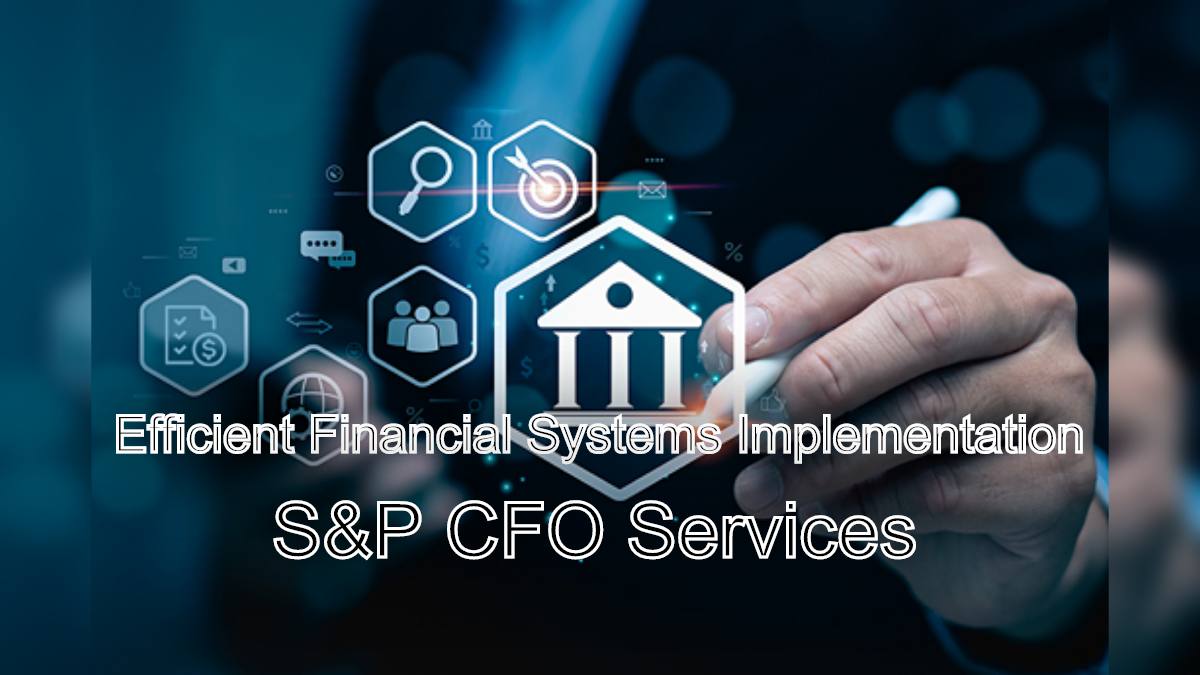Efficient Financial Systems: In today’s fast-paced business environment, efficient financial systems are indispensable for driving growth and profitability. Implementing a robust financial system can streamline operations, enhance decision-making, and mitigate risks. S&P CFO Services offers expert guidance to businesses seeking to optimize their financial infrastructure.
Efficient Financial Systems: Implementation Tips from S&P CFO Services
Defining Your Financial System Needs
The initial step in implementing an efficient financial system is identifying specific business requirements. Organizations must clearly define their goals, processes, and data needs. This involves conducting a thorough assessment of existing systems, identifying pain points, and determining the desired outcomes.
Selecting the Right Financial System
With a myriad of financial software options available, choosing the right system is crucial. Businesses should consider factors such as scalability, customization, integration capabilities, cost, and vendor support. It’s essential to align the system with the company’s long-term strategic objectives.
Data Migration and Integration
Migrating data from existing systems to the new platform can be complex. Effective data migration planning is vital to ensure accuracy and minimize disruptions. Integrating the financial system with other enterprise applications, such as CRM and ERP, enhances data flow and decision-making capabilities.
User Adoption and Training
Successful implementation hinges on user adoption. Comprehensive training programs are essential to equip employees with the necessary skills to utilize the system effectively. Change management strategies can help overcome resistance and foster a positive attitude towards the new system.
Testing and Optimization
Thorough testing is crucial to identify and rectify issues before the full-scale implementation. User acceptance testing (UAT) involves end-users validating the system’s functionality and performance. Continuous monitoring and optimization are essential to maximize the system’s benefits.
The Role of S&P CFO Services
S&P CFO Services offers comprehensive support throughout the financial system implementation process. Our team of experts provides strategic guidance, technical expertise, and project management to ensure successful outcomes. We collaborate closely with clients to tailor solutions that align with their specific business needs.
FAQs About Financial System Implementation
A: The implementation timeline varies depending on the system’s complexity, data migration requirements, and organizational factors. It can range from several months to a year or more.
A: Common challenges include data quality issues, user resistance, system integration complexities, and budget constraints.
A: Key performance indicators (KPIs) can be used to measure the success of the system. These may include improved financial reporting accuracy, reduced processing time, enhanced decision-making, and cost savings.
A: Change management involves planning, executing, and controlling the change process to minimize disruption and maximize employee acceptance.
A: Yes, many organizations choose to outsource the implementation process to specialized firms like S&P CFO Services to leverage their expertise and resources.
Conclusion
Implementing an efficient financial system is a strategic investment that can yield significant benefits for businesses. By following best practices and seeking expert guidance, organizations can successfully navigate the implementation process and achieve their financial goals. S&P CFO Services is committed to partnering with clients to build robust financial infrastructures that drive growth and success.
Read More
- Virtual CFO Services: Maximize Your Business’s Financial Success
- About: A Comprehensive Guide to S&P CFO Services
- Optimize Finances: Financial Planning & Analysis Services in Chennai
- Financial Reporting and Analysis: Navigating the Fiscal Maze
- Optimizing Your Finances: Capital Structure Planning with S&P CFO Services
- Securities and Exchange Board of India (SEBI):
